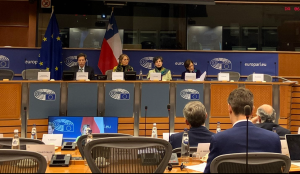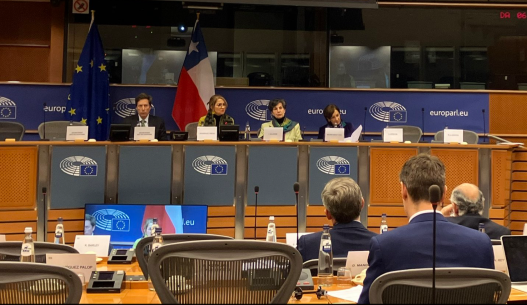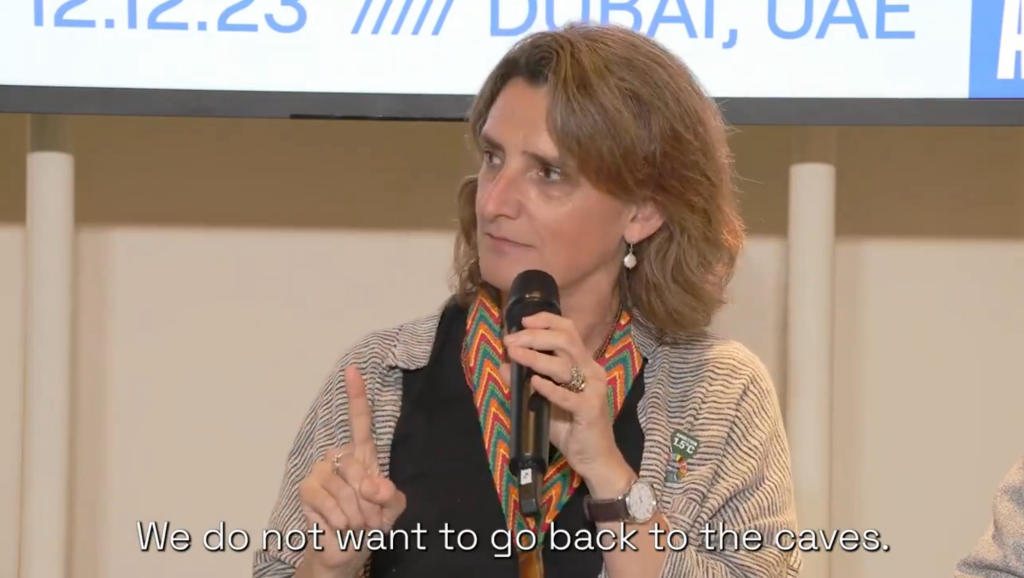
EU-CHILE: COUNCIL APPROVES AGREEMENT TO UPDATE BILATERAL PARTNERSHIP
The Council of Europe has adopted this Monday, 4 December 2023, two decisions to sign the Advanced Framework Agreement (AFA) and the Interim Trade Agreement (ITA) with Chile, which together constitute an updated version of the EU-Chile Association Agreement currently in force.
The new agreement will strengthen political and economic relations between the EU and Chile and deepen cooperation and trade. It will help to jointly address new global challenges, such as the repercussions of the Russian invasion of Ukraine, including global inflation, supply chain disruptions and the energy crisis.
The EU-Chile Trade Agreement will reinforce the EU’s open strategic autonomy and economic security, strengthening the resilience of supply chains and diversifying imports of key inputs for the green transition, as well as export opportunities for European companies.
The Advanced Framework Agreement (AFA) consists of political, cooperation and trade and investment components. The Interim Trade Agreement (ITA) deals with trade and investment liberalization, those elements of the trade and investment component of the AFA that fall exclusively within EU competence, while investment protection provisions are covered by the Advanced Framework Agreement (AFA).
This means that the ITA will only need to be ratified by the EU and not by individual member states. The ITA will expire when the AFA, subject to ratification by all member states, enters into force.
ADVANCED FRAMEWORK AGREEMENT
The agreement is based on shared universal values such as democracy and human rights. It includes cooperation in areas such as health, environment, climate change, ocean governance, energy, taxation, education and culture, labor, employment and social affairs, science and technology, and transportation. It also addresses legal cooperation, rule of law, money laundering and terrorist financing, organized crime and corruption. Finally, the AFA covers the EU’s standard clauses on the International Criminal Court (ICC), weapons of mass destruction (WMD), small arms and light weapons (SALW) and counter-terrorism.
The trade component of the AFA broadens the scope of the current bilateral trade framework and adjusts it to the new global political and economic challenges, to the new reality of the EU-Chile partnership and to the level of ambition of the recently concluded trade agreements and negotiations.
INTERIM TRADE AGREEMENT
The EU is Chile’s third largest trading partner. Around 99.9% of EU exports will be tariff-free when the agreement comes into force, which is expected to increase EU exports to Chile by up to €4.5 billion. The agreement will provide greater access to clean raw materials and fuels such as lithium, copper and hydrogen, which are crucial for the transition to a green economy. It will also make it easier for EU companies to provide services in Chile, including delivery, telecommunications, shipping and financial services.
It will provide the same treatment to EU investors in Chile as Chilean investors and give EU companies better access to Chilean public contracts for goods, services, works and works concessions, and vice versa. The agreement includes a chapter dedicated to small and medium-sized enterprises in order to help ensure that smaller companies benefit fully from the agreement, including by reducing bureaucracy.
NEXT STEPS
The signing ceremony for the agreements is expected to take place in mid-December. The European Parliament will then be asked to give its approval so that the Council can take the necessary decisions to conclude the agreements. Once both parties have completed their internal procedures, the agreement can enter into force.
The current EU-Chile Association Agreement entered into force on March 1, 2005. At a meeting held on the margins of the EU-CELAC Summit in Santiago on January 26-27, 2013, EU and Chilean leaders agreed to explore options for updating the agreement to further improve political and economic relations and deepen cooperation and trade. The EU and Chile reached the political conclusion of the negotiations on December 9, 2022 in Brussels.
This article was originally published in Aquí Europa. If you plan to use it, please cite that source.



